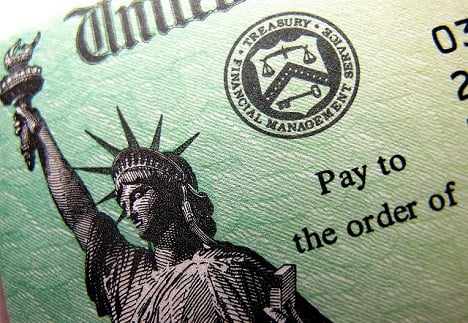Those of us who have left Benjie and bald eagles behind are sometimes lured into thinking we have escaped at least the second part. Unfortunately, that’s not the case.
“The US is one of only two countries in the world that requires its citizens living overseas to file and pay taxes,” says David McKeegan, co-founder of Greenback Expat Tax Services. “I think that can come as a shock to many folks, especially people who have been living abroad for a while.”
McKeegan explains that these rules have been in place for a long time – but it wasn’t until the US government started cracking down on tax evaders and enforcing anti-terror banking rules that they started causing problems for average expats.
“The Foreign Account Tax Compliance Act (FATCA) requires all foreign financial institutions to report US citizens’ bank details to the US government each year,” he explains. “This has been a huge headache for US folks overseas – some foreign banks won’t even work with Americans anymore.”
McKeegan, an American expat himself, has experienced that headache first-hand.
“My wife, Carrie, and I were so frustrated and overwhelmed with our own expat tax needs while living in the UK,” he recalls. “So in 2008, we decided to create the kind of company we were searching for, and together, we founded Greenback Expat Tax Services.”
Not only do American expats living around the world have to keep track of American tax deadlines and rules, they generally also have to file in their country of residence. And the regulations can vary vastly.
“Germany taxes its residents on their worldwide income, for instance, and you’re considered a resident if you arrive with the intent of staying for a period longer than six months,” McKeegan says. “Whereas Swedish residency only comes with certain types of permits.”
Permanent residents in Sweden pay tax on all worldwide income and capital gains, whereas those on temporary permits only pay tax on Swedish income and capital gains.
Confused? You’re not alone.
“Many American expats find their tax situation daunting, and this is where we can help,” says McKeegan. “The goal of our company is to make life better for Americans living abroad by taking away the anxiety and hassle of becoming and staying compliant on US taxes while overseas.”
And now is the time to get it done.
“June is actually a huge month for US expats,” McKeegan remarks.
“For Americans living abroad, US expat taxes are due June 17th, as the IRS provides an automatic two-month extension from ‘Tax Day’, which was April 18th this year. Additionally, if you had over $10,000 in foreign bank accounts during the calendar year, you will need to submit your Foreign Bank Account Reporting (FBAR) form. The FBAR due date is June 30th this year.”
Expats can apply for an additional extension for their expat tax returns until October 17th, but it’s still important to address the issue in time. It’s easy to postpone the dreaded paperwork – but side-stepping Uncle Sam can come with harsh consequences.
For one, those who file late can be slapped with massive fines.
“Additionally, an unprecedented law enacted on January 1st, 2016, now allows the US State Department to revoke an expat’s passport if they are behind on US taxes and owe more than $50,000 to the IRS. This is really big and potentially scary news for the expat community,” McKeegan warns.
“The penalty for willfully not reporting foreign bank accounts starts at $10,000, so if you have five accounts that are not reported, you could hit this in one year and lose your passport!”
Greenback’s team of more than 30 US CPAs and IRS Enrolled Agents are expat tax experts who focus 100 percent on expat tax returns and take the time to understand each individual situation to provide the best advice and service possible.
“All of our accountants have extensive expat tax preparation experience and really try to make the filing process as simple, hassle-free and easy as possible,” McKeegan says. “Also, we offer flat fee pricing so expats know exactly what to expect from the start – no surprises!”
Need help getting your expat taxes done in time? Don’t hesitate to contact Greenback
This article was produced by The Local and sponsored by Greenback Expat Tax Services.



 Please whitelist us to continue reading.
Please whitelist us to continue reading.